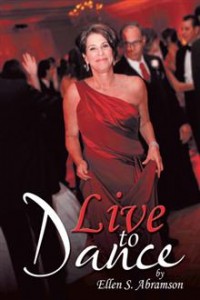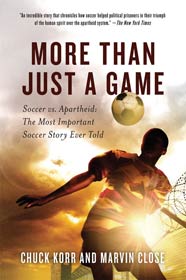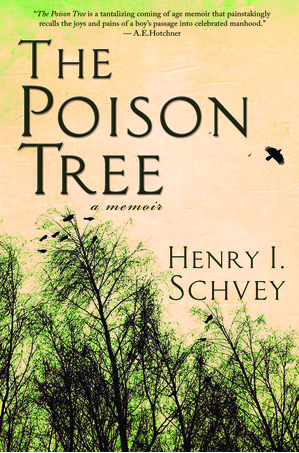St. Louis Jewish Book Festival: Missouri’s Own Program
Share the post "St. Louis Jewish Book Festival: Missouri’s Own Program"
by Diana Davis
The cold drizzle could not keep an enthusiastic crowd away from the St. Louis Jewish Book Festival: Missouri’s Own Program which featured St. Louis authors. Michael Kahn hosted the event and introduced the afternoon’s theme: successfully coping with and triumphing over hardships, disabilities and adversity. Three local authors paneled the discussion – Ellen Abramson (Live to Dance), Marc Elliot (What Makes You Tic), and Chuck Korr (More Than Just a Game).
Ellen Abramson is a vibrant, strong speaker. She began by saying “I am a wife, a mother, a sister, a daughter, a co-worker and a gardener. In short, I am you.” Ellen knows the benefits of exercising and eating well. She used to work at a weight loss company, and she  practiced what she preached. She was once known as the “Stair-stepper Queen.
practiced what she preached. She was once known as the “Stair-stepper Queen.
She certainly didn’t consider herself at risk of a heart attack which is why she had ignored her daughter who had noticed she wasn’t breathing well and ignored her difficulty sleeping. Her bouts with indigestion had brought her to her family doctor who gave her a cursory checkup and reassured her that she was fine.
On April 27, 2008, she had her morning all planned out, from 8-9 a.m., she would garden, from 9-10 a.m.; she would jog on the treadmill. She had asked her husband to save that time-slot for her that day, but when she came in from gardening, he was on the treadmill. Irritated, she went to her office to send some emails while she waited for him to finish. It seemed that she had just sat down when a “grabbing sensation” filled her chest. She moved to the couch in her office and began to sweat. She thought, “I’m having a heart attack.” She yelled to her husband for help. He brought her some antacids, but it was clear that they weren’t going to work. She needed to go to the hospital. Of course she wasn’t going to go without cleaning off some of the sweat and dirt first, so she decided to take a shower. She went to the bathroom and stripped off her clothes. Her feet were purple. She thought of a grandparent who had died from a heart attack because of a delayed trip to the hospital. She put back on her clothes and left the house. Within 18 minutes of arrival at the emergency room Ellen went into full cardiac arrest. Electric paddles were used to restore the rhythm of her heart. She was taken to a catheterization laboratory where a stent was inserted in a blood vessel to restore the flow of life-giving oxygen. She stayed in the hospital three days.
It was during this time that Ellen made up her mind to warn other women about pending heart attack symptoms. Her message is this:
It is not true that only obese, apple-shaped, couch-potato women die from heart disease. Thin, active ones do too. If you have symptoms such as fatigue, shortness of breath, look tired physically, have thoughts that you are getting close to the end of your life, then take yourself off to a heart specialist. With newer treatments, like inserting stents, heart disease is largely treatable. Women take care of everyone else; it is time that they also take care of themselves.
That’s the message she wants to get out to women everywhere in her book, Live to Dance. Had she not sought help when she did, she would not have been around to dance at her daughter’s wedding, to attend her sons’ graduations from college, or to be present at the birth of her grandchildren. She wants to educate other women so they can experience similar joys.
Marc Elliot was the second speaker. He was born with Hirschsprung’s Disease, a disorder where the nerves needed to push along fecal matter are missing in his intestines. He had twenty-six experimental surgeries at St. Louis Children’s Hospital by the time he was two years old. As a result of the disease, he has no large intestines and only four feet of small  intestines. By his own admission he has “loudest poops” in the world. He lives with it.
intestines. By his own admission he has “loudest poops” in the world. He lives with it.
At age 9, he sat on the physician’s treatment table as the doctor told his mother that he also had Tourette’s Disease, a disease characterized by involuntary tics, bizarre behaviors and involuntarily shouting of offensive words. That disease dominated the next 20 years of his life. Tourette’s for him includes severe facial tics, as well as chomping his teeth and barking like a dog. Once while standing in line to board a plane he said, “Bomb, Bomb, Bomb.” He has been thrown off a bus, miles from home, because he said the “N” word near African-American riders. Just to watch a movie or go to a play, he has to stuff a washcloth in his mouth so others could not hear his outcries.
Despite all this, he attended Washington University in St. Louis and was treated well. The professors let him tell his classmates about condition so others would be more tolerant. After graduation, he was invited to give a presentation on tolerance to high school students. His presentation was such a success, he was invited to tell his story at other schools and finally decided to become an inspirational speaker. To date, he has given over 300 inspirational speeches in 40 states. He has been named “College Speaker and Diversity Artist of the Year” by Campus Activities.
In his book What Makes You Tic? he requests that students look inward and try to find tolerance for those who are different than other people. “Live and let live” is his motto. It is Plato who sums up his point best, though – “Be kinder than necessary; everyone is fighting [his or her] own battles.”
The final speaker, Chuck Korr, Professor Emeritus of History at University of Missouri-St. Louis, became interested in apartheid while still in high school. He had to do a paper on prejudice, and his father suggested that he do it on the subject. His interest continues to this day.
 Apartheid was more than the racial prejudice that we have in this country. It is a policy based on the ideology that whites are the superior race and all Africans, females and Asians are inferior in comparison. Under this policy, the government had three goals, to punish the people for political opposition, to break the spirit of the oppressed, and to keep dissidents confined forever.
Apartheid was more than the racial prejudice that we have in this country. It is a policy based on the ideology that whites are the superior race and all Africans, females and Asians are inferior in comparison. Under this policy, the government had three goals, to punish the people for political opposition, to break the spirit of the oppressed, and to keep dissidents confined forever.
Those imprisoned knew that to survive they had to keep their lives as normal as possible. One of the things they wanted was to play football again. It took two and a half years of petitions until they were finally allowed to play. In Korr’s book, More Than Just a Game, he explores how this “simple” game helped these men to survive by giving them hope and self-worth. They learned from each other. They learned about themselves. They survived, in part, because football gave them the normalcy they needed to keep hope alive.
For additional information on the book festival, please see: www.stljewishbookfeatival.org.





